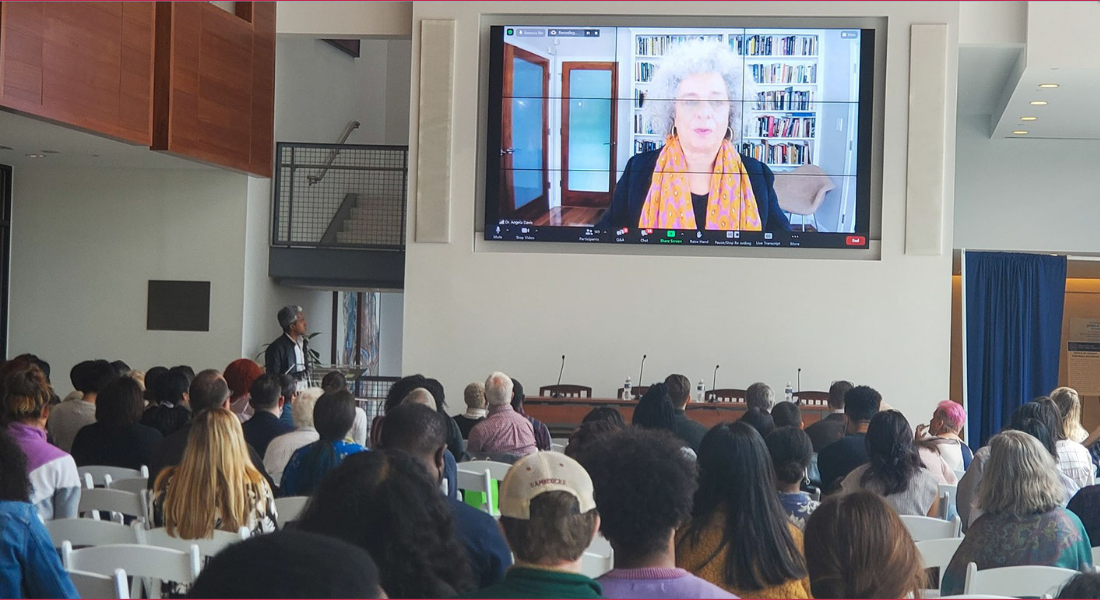
Villanova anti-poverty symposium touches on housing and fighting inequality in 2021
The event is part of a university-wide initiative on poverty and inequality.
On Friday, Oct. 22, Villanova University hosted an anti-poverty symposium at the Charles Widger School of Law.
This interdisciplinary event is a part of a University-wide initiative on poverty and inequality that was made possible by a $1 million gift from alumni Paul Tufano Esq., and Christine Tufano.
Paul Tufano said in a statement that the initiative has been developing for some time and the events of 2020 only made it more clear how pertinent it is to address the inequities in the nation.
In addition to the planning of an annual symposium, Tufano’s gift has enabled Villanova to create a fellowship program and name Stephanie Sena as the inaugural fellow.
Sena is an adjunct professor at the university, as well as the founder and executive director of the Student-Run Emergency Housing Unit of Philadelphia (SREHUP).
The symposium brought together thought leaders and advocates to explore the cause and effect of poverty and inequality.
Our first panel, “Shifting the Poverty Lens: Caritas in Focus” features @RoxanaBendezu from @PaxChristiUSA, @cassiegoeschirp from @resolvephilly, Arthur Purcaro, OSA from @VUCampusMinistr & Alicia Robinson from @SREHUP #2021AntiPovertySymposium
— Villanova Law (@Villanova_Law) October 22, 2021
At 11:00 am, the audience heard from Cassie Haynes, the Co-Executive Director of Resolve Philly, an organization that challenges the field of journalism to be equitable, collaborative and informed by community voices and solutions.
Haynes used the well-known story of Little Red Riding Hood to illustrate the way that harmful narratives about poverty become ingrained in our minds.
“Why is this story so easy for us to recall, especially when most of us have not read or engaged with this story recently? Because it has a beginning, middle and an end,” Haynes said, emphasizing that this simple sequence makes it easy for our brains to remember it.
She then engaged the audience by comparing this children’s story to narratives we’ve been told time and time again about poverty.
“What happens when we assign a beginning, a middle and an end to somebody else’s story?,” she asked.
This summer, we partnered with @WomensWay on the Change the Narrative Fellowship, where we sought to change the narrative on poverty by empowering 8 women to share their experiences unfiltered.
— Broke in Philly (@BrokeinPhilly) September 1, 2021
Follow this to see (and hear!) their stories.
According to Haynes, the three biggest drivers of these harmful narratives are the news and entertainment industry, academia and research, and policy.
Haynes mentioned the revamped Head House Square in Philadelphia, as an example of how the city subtly pushes out people experiencing homelessness and poverty.
RELATED CONTENT
“All of the seating areas in Head House Square, none of them have backs. They're not built to be comfortable. They're not built for people who spend a lot of time there. They're not built for people to stretch out or lay down. These are quiet decisions, quiet policies, quiet practices that reinforce these narratives of what it means to be experiencing poverty,” Haynes said.
Next up, the audience heard from Alicia Robinson, a board member of SREHUP, and a pharmacy technician.
Robinson shared her story of experiencing poverty and homelessness through couch surfing and staying in hotels. Through this struggle, she had to give up her dog, which was her emotional support pet.
While at the animal shelter, she and her husband met someone who knew Sena, from SREHUP, and were told to call her for help.
A @VillanovaU faculty member is looking to make a difference for the Philly homeless community - and their pets.https://t.co/GZD3j6y4bY
— Villanova University Media Relations (@VillanovaMedia) September 25, 2017
Upon meeting with Robinson, Sena “immediately got to work,” and within 24 hours, Robinson and her husband were on the road to a better and more permanent housing situation.
“I want to share that with you because of that woman who was going through her own issues. And you have a team of people who are doing it too, that there's a lot of other people in this room and there's other people that can recognize that,” Robinson said.
At noon, the audience got to hear from the most anticipated speaker, political activist and author, Angela Davis PhD, via Zoom. This question and answer segment was moderated by author and scholar, Anand Giridharadas.
Joining us virtually for our lunch talk is political activist, philosopher, academic & author, Angela Davis, interviewed by @AnandWrites #2021AntiPovertySymposium pic.twitter.com/FkHqQlBn8y
— Villanova Law (@Villanova_Law) October 22, 2021
“We do have to tax the rich. Someone like Jeff Bezos should not be permitted to monopolize so much wealth. Perhaps he should listen to his ex-wife on this, who has given so much of that wealth to organizations that are trying to make a change,” Davis said.
The Catholic university’s motto is Veritas, Unitas, Caritas, which translates to truth, unity, love in Latin. Hence, the event was entitled: Caritas in Action: Root Causes, Solutions and Restoring Dignity.
Housed within the Charles Widger School of Law, this initiative will support programmatic efforts to cultivate solid ideas and policy solutions to address the systemic issues of inequality.











LEAVE A COMMENT: